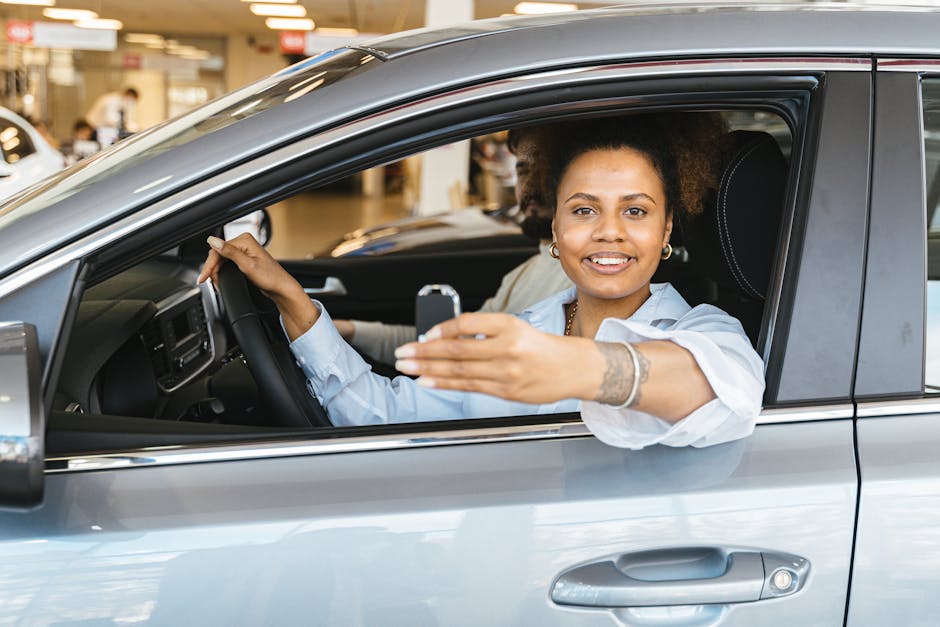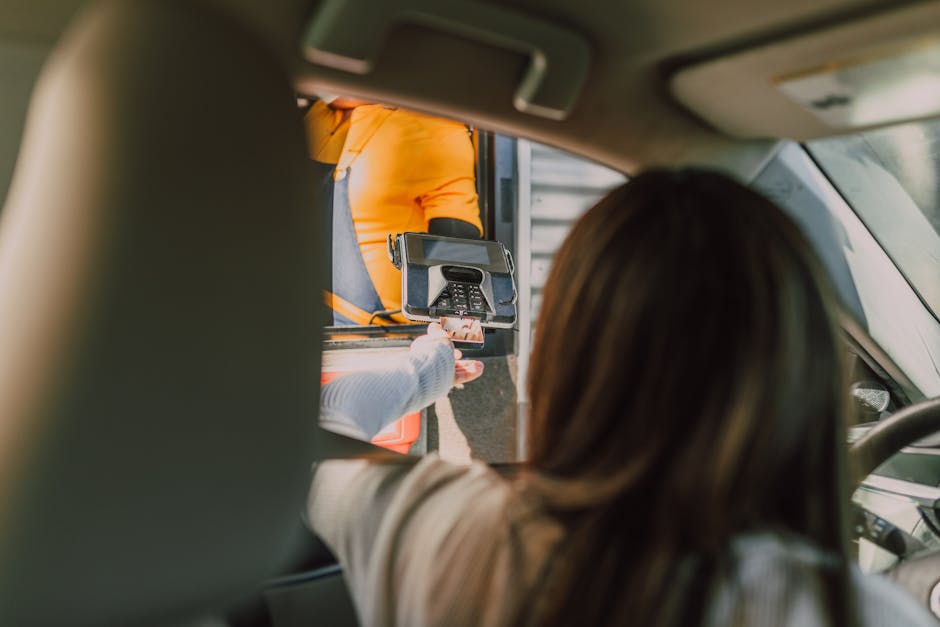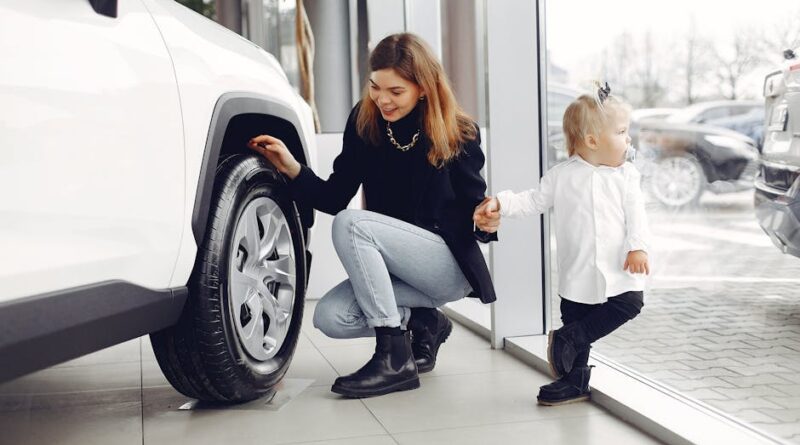Decoding the Art of Buying a Second-Hand Car
Are you in the market for a new set of wheels but don’t want to break the bank? Have you considered the option of purchasing a second-hand car? Buying a pre-owned vehicle can be a smart and cost-effective choice, but it does come with its own set of challenges and considerations. In this comprehensive guide, we will delve into the intricacies of buying a second-hand car, providing you with the knowledge and tools you need to make a well-informed decision. So, buckle up as we explore the fascinating world of second-hand car purchases!
The Benefits of Buying a Second-Hand Car

When it comes to purchasing a vehicle, buying used can offer a multitude of benefits. One of the primary advantages is cost savings. Second-hand cars are typically priced lower than their brand-new counterparts, allowing you to get more value for your money. Additionally, buying used can help you avoid the steep depreciation that occurs in the first few years of a new car’s life. This means you may be able to sell the car later on without experiencing a significant loss in value.
Another advantage of buying a second-hand car is that you can often afford a higher-end model or a vehicle with more features than if you were purchasing new. This can give you access to a wider range of options and amenities at a lower price point. Additionally, many pre-owned cars come with a detailed maintenance history, allowing you to assess the vehicle’s condition and performance before making a purchase.
Factors to Consider When Buying a Second-Hand Car

While buying a second-hand car can be a great way to save money, it’s essential to approach the process with caution and diligence. Here are some key factors to consider when purchasing a pre-owned vehicle:
1. Budget
Before you start shopping for a second-hand car, it’s crucial to establish a budget and stick to it. Determine how much you can afford to spend on the vehicle, including factors like insurance, registration, and maintenance costs. Setting a budget will help you narrow down your options and prevent you from overspending.
2. Research
Research is paramount when buying a second-hand car. Take the time to explore different makes and models, read reviews, and compare prices. Look for vehicles that have a good reputation for reliability and durability. Additionally, consider factors like fuel efficiency, maintenance costs, and resale value when making your decision.
3. Vehicle History
One of the most critical aspects of buying a second-hand car is examining the vehicle’s history. Request a comprehensive vehicle history report that includes information about previous accidents, repairs, and maintenance records. This report can give you valuable insights into the car’s past and help you identify any red flags.
4. Inspection and Test Drive
Before finalizing the purchase of a second-hand car, it’s essential to inspect the vehicle thoroughly and take it for a test drive. Look for signs of wear and tear, check the engine, brakes, and tires, and ensure that all the vehicle’s features are in working order. A test drive will allow you to assess the car’s performance and handling firsthand.
5. Negotiation
When buying a second-hand car, don’t be afraid to negotiate the price. Dealers and private sellers are often willing to haggle, especially if the vehicle has been on the market for a while. Research the fair market value of the car and use this information to negotiate a price that works for both parties.
Where to Buy a Second-Hand Car

There are several avenues where you can purchase a second-hand car, each with its own set of pros and cons. Here are some common options to consider:
1. Dealerships
Buying a second-hand car from a dealership can offer you peace of mind and a certain level of assurance. Dealerships often inspect and refurbish their used cars, providing you with a vehicle that has been thoroughly vetted. Additionally, dealerships may offer warranties and financing options, making the buying process more convenient.
2. Private Sellers
Another option for purchasing a second-hand car is to buy directly from a private seller. Buying from a private seller can sometimes result in a better deal, as you may be able to negotiate a lower price. However, the transaction may be riskier, as private sellers are not bound by the same regulations and standards as dealerships.
3. Online Marketplaces
With the rise of online marketplaces, buying a second-hand car has never been easier. Websites like Craigslist, Autotrader, and eBay Motors allow you to browse a wide selection of used cars from the comfort of your own home. However, buying online comes with its own set of risks, so be sure to do your due diligence before making a purchase.
Common Misconceptions About Buying a Second-Hand Car

There are several misconceptions surrounding the purchase of second-hand cars that can deter buyers from considering this option. Let’s debunk some of the most common myths:
1. Second-hand Cars Are Unreliable
Contrary to popular belief, many second-hand cars are reliable and well-maintained. By conducting thorough research and inspections, you can find a used car that meets your needs and performs well. Additionally, purchasing from reputable sources like dealerships can help ensure the quality of the vehicle.
2. Second-hand Cars Have High Mileage
While it’s true that some second-hand cars may have higher mileage, this doesn’t necessarily mean they are in poor condition. Modern vehicles are built to last, and proper maintenance can keep a car running smoothly even with high mileage. Focus on the overall condition of the vehicle rather than solely on the odometer reading.
FAQs About Buying a Second-Hand Car
Q: Is it better to buy a second-hand car from a dealership or a private seller?
A: The choice between buying from a dealership or a private seller depends on your preferences and priorities. Dealerships offer more security and convenience, while private sellers may provide better deals. Consider your needs and budget before making a decision.
Q: What should I look for in a vehicle history report?
A: When reviewing a vehicle history report, pay attention to details like accident history, title status, service records, and odometer readings. Look for any discrepancies or red flags that may indicate potential issues with the car.
Conclusion
To wrap things up, buying a second-hand car can be a rewarding experience if approached with caution and knowledge. By considering factors like budget, research, vehicle history, inspection, and negotiation, you can make an informed decision that suits your needs and preferences. Whether you choose to buy from a dealership, a private seller, or an online marketplace, remember to prioritize reliability and quality in your purchase. So, get ready to hit the road in your new-to-you vehicle and enjoy the freedom and flexibility that comes with owning a second-hand car!




